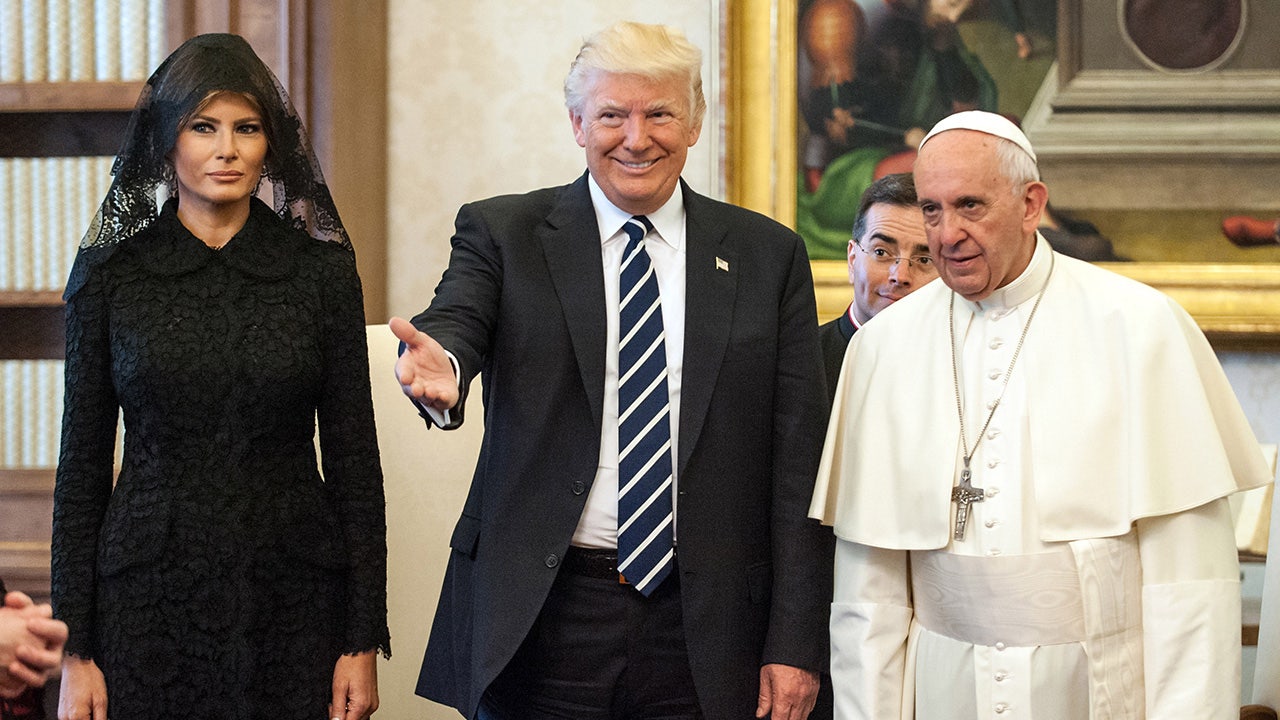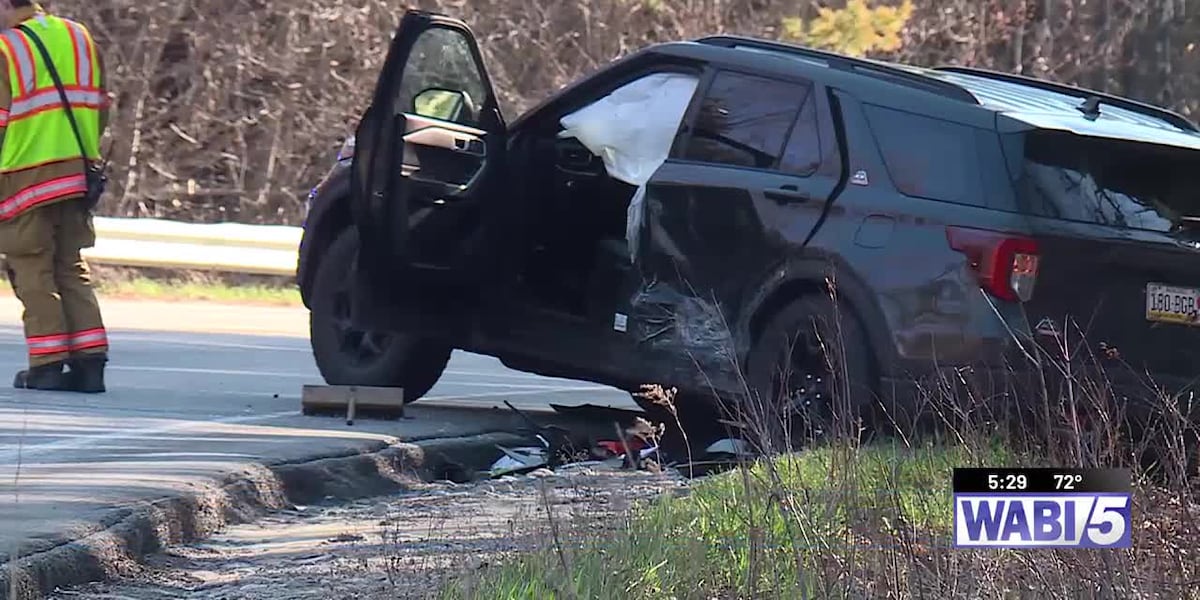Education
Florida Considers Tough Discipline for College Staff Who Break Bathroom Law

The Latest
The Florida State Board of Education is expected to vote Wednesday on new rules at state colleges for transgender employees and students that are intended to comply with a law, passed in May, restricting access to bathrooms.
According to the board’s proposal, colleges will be forced to fire employees who twice use a bathroom other than the one assigned to their sex at birth, despite being asked to leave.
The proposal also states that the bathroom restrictions apply to student housing operated by the colleges, meaning that transgender students living in dorms may be required to use only the bathrooms that align with their sex at birth.
Adding Sharp Teeth to a New Law
The proposed new regulation shows that colleges, like K-12 schools, will be caught up in the new restrictions and the bureaucracy required to enforce them.
The state college system serves 650,000 students on a network of 28 regional campuses.
It is operated separately from the State University System of Florida, which runs the 12 flagship campuses, including the University of Florida and Florida State.
The State Board’s proposed rule goes beyond the new bathroom law, known as House Bill 1521. Gov. Ron DeSantis, a Republican presidential candidate, signed that bill in May and has made restricting transgender rights a signature issue.
The legislation states that employees who break the bathroom rule can be found in violation of professional standards and “are subject to discipline” — but it does not state that they would be fired after two violations.
“We’re seeing in general that after laws are passed, agencies and boards are inflicting new harms,” said Carlos Guillermo Smith, a senior policy adviser for Equality Florida, an L.G.B.T.Q. rights group. “They are really exceeding their authority.”
The Florida Department of Education did not immediately respond to a request for comment.
All seven members of the state education board are appointed by Gov. DeSantis. The board has generally approved sweeping new regulations that codify the governor’s education agenda. It has sought to remove content on race, gender, sex and sexuality from the curriculum; to restrict books on those subjects from K-12 school libraries; and to prevent K-12 educators from asking for students’ pronouns.
What’s Next
When it comes to students, the law requires each individual college to outline “disciplinary procedures” for transgender students who break the bathroom regulations.
Mr. Smith said he expected that the State University System would soon pass regulations interpreting the bathroom bill in a similarly restrictive way, since that system, too, is governed by officials appointed by the governor.
A spokesman for the Board of Governors, which runs the university system, did not immediately respond to a request for comment.

Education
Opinion | The Jewish Students Caught Up in Trump’s Antisemitism Crackdown

Given these figures, it’s not surprising that Jews have taken a leading role in the protests against Israel’s assault on Gaza. Eleven days after Oct. 7, 2023, progressive and anti-Zionist Jewish groups, including Jewish Voice for Peace, gathered roughly 400 protesters, many wearing shirts that said “Not in Our Name,” and occupied a congressional building. Later that month, Jewish Voice for Peace and its allies led a takeover of New York’s Grand Central Terminal. At Brown University, the first sit-in demanding divestment from companies affiliated with Israel comprised solely Jewish students.
Jewish students are not generally as vulnerable as their Palestinian, Arab, Muslim, Black and noncitizen counterparts, but it is precisely this assumption of greater safety that may have made them more willing to protest in the first place. And many have paid a price. It’s impossible to know what percentage of the students punished for pro-Palestinian activism have been Jewish, since university disciplinary proceedings are often secret. But anecdotal evidence suggests it is significant. And regardless of one’s views about how universities should treat campus activism, there is something bizarre about repressing it in the name of Jewish safety when a number of the students being repressed are Jews.
Since Oct. 7, at least four universities have temporarily suspended or placed on probation their chapters of Jewish Voice for Peace. In 2023 at BrownU Jews for Ceasefire Now protests, 20 members were arrested. (The charges were dropped.) At a pro-Israel event at Rockland Community College at the State University of New York on Oct. 12, 2023, a Jewish student who briefly shouted “From the river to the sea, Palestine will be free” and “Jews for Palestine” was reportedly suspended for the rest of the academic year. In May 2024, a Jewish tenured professor in anthropology at Muhlenberg College said she was fired after she reposted an Instagram post that declared, in part: “Do not cower to Zionists. Shame them. Do not welcome them in your spaces. Do not make them feel comfortable.” In September, Michigan’s attorney general brought felony charges for resisting or obstructing a police officer, as well as misdemeanor trespassing charges, against three Jewish activists — as well as four others — for offenses related to a Gaza solidarity encampment at the University of Michigan in Ann Arbor. (They all pleaded not guilty).
Even when protest has taken the form of Jewish religious observance, it often has been shut down. Last fall, when Jewish students opposing the war during the holiday of Sukkot built Gaza solidarity sukkahs, temporary boothlike structures in which Jews eat, learn and sleep during the holiday, at least eight universities forcibly dismantled them, or required the students to do so, or canceled approval for their construction. (The universities said that the groups were not allowed to erect structures on campus.)
Despite this, establishment Jewish pro-Israel organizations have applauded universities that have cracked down on pro-Palestinian protest. When Columbia suspended its branch of Jewish Voice for Peace alongside Students for Justice in Palestine, the A.D.L. congratulated the university for fulfilling its “legal & moral obligations to protect Jewish students.” After New Hampshire police broke up Dartmouth’s Gaza solidarity encampment, the A.D.L. thanked the college’s president for “protecting all students’ right to learn in a safe environment.” But the experience was hardly safe for Annelise Orleck, the former chair of the school’s Jewish studies program, who said she was zip-tied, body-slammed and forcibly dragged by police officers when they moved in. After the state attorney general announced that she would bring charges against demonstrators at the University of Michigan’s encampment who had allegedly violated the law, an official at the Jewish Federation of Greater Ann Arbor praised her for acting “courageously.” The A.D.L. has since reversed its prior support for the Trump administration’s detention of pro-Palestinian activists. But it still wants universities to impose tough restrictions on campus protest. When I reached out to the organization asking if it had a position on Jewish students getting swept up in campus crackdowns, representatives referred me to Mr. Greenblatt’s recent opinion essays. Each one reiterated the need to fight against what it deems campus antisemitism, but also advocated due process for all those involved.
Education
Trump Administration Opens Civil Rights Inquiry Into a Long Island Mascot Fight

Federal education officials said on Friday that they had opened a civil rights inquiry into whether New York State could withhold state money from a Long Island school district that has refused to follow a state requirement and drop its Native American mascot.
The announcement came shortly after President Trump expressed his support for the district, in Massapequa, N.Y., in its fight against complying with a state Board of Regents requirement that all districts abandon mascots that appropriate Native American culture or risk losing state funding.
The Massapequa district, whose “Chiefs” logo depicts an illustrated side profile of a Native American man in a feathered headdress, is one of several that have resisted making a change.
The name of the town, a middle-class swath of the South Shore where most residents voted for Mr. Trump in the November election, was derived from the Native American word “Marspeag” or “Mashpeag,” which means “great water land.”
In announcing the investigation, Linda McMahon, the education secretary, said that her department would “not stand by as the state of New York attempts to rewrite history and deny the town of Massapequa the right to celebrate its heritage in its schools.”
JP O’Hare, a spokesman for the state Education Department, said in a statement that state education officials had not been contacted by the federal government about the matter.
“However,” he added, “the U.S. Department of Education’s attempt to interfere with a state law concerning school district mascots is inconsistent with Secretary McMahon’s March 20, 2025, statement that she is ‘sending education back to the states, where it so rightly belongs.’”
The policy, introduced in 2022, was adopted amid a national push to change Native American mascot names or iconography through legislation and other moves.
When the ban was adopted, about five dozen New York school districts still used Native American-inspired mascots and logos. Districts were given until the end of June this year to eliminate banned mascots.
Since taking office for his second term, Mr. Trump and his administration have waged a relentless campaign against what they argue are illegal diversity, equity and inclusion initiatives and have threatened entities that do not fall in line and eliminate such efforts.
The president has said he would slash funding for low-income students in states that fail to do away with such programs. New York’s Education Department was the first to publicly refuse to comply with the order.
Massapequa school leaders filed a federal lawsuit seeking to keep the “Chiefs” name, but the judge in the case recently moved closer to dismissing it after finding they had failed to provide sufficient evidence for their claims, including that the mascot qualified as protected speech.
In a social media post this week, Mr. Trump criticized New York’s policy and called for Ms. McMahon to intervene.
“Forcing them to change the name, after all of these years, is ridiculous and, in actuality, an affront to our great Indian population,” the president wrote.
In a statement included in the federal Education Department’s announcement, Kerry Watcher, the Massapequa Board of Education president, welcomed the investigation.
“Attempts to erase Native American imagery do not advance learning,” Ms. Watcher said. “They distract from our core mission of providing a high-quality education grounded in respect, history and community values.”
Education
19 States Sue the Trump Administration Over Its D.E.I. Demand in Schools

A coalition of 19 states sued the Trump administration on Friday over its threat to withhold federal funding from states and districts with certain diversity programs in their public schools.
The lawsuit was filed in federal court by the attorneys general in California, New York, Illinois, Minnesota and other Democratic-leaning states, who argue that the Trump administration’s demand is illegal.
The lawsuit centers on an April 3 memo the Trump administration sent to states, requiring them to certify that they do not use certain diversity, equity and inclusion programs that the administration has said are illegal.
States that did not certify risked losing federal funding for low-income students.
Rob Bonta, the California attorney general, said at a news conference on Friday that the Trump administration had distorted federal civil rights law to force states to abandon legal diversity programs.
“California hasn’t and won’t capitulate. Our sister states won’t capitulate,” Mr. Bonta said, adding that the Trump administration’s D.E.I. order was vague and impractical to enforce, and that D.E.I. programs are “entirely legal” under civil rights law.
The Trump administration did not immediately respond to a request for comment on Friday evening.
The administration has argued that certain diversity programs in schools violate federal civil rights law, which prohibits discrimination on the basis of race, color and national origin in programs that receive federal funding.
It has based its argument on the Supreme Court’s 2023 ruling ending the use of race in college admissions, arguing that the decision applies to the use of race in education more broadly.
The administration has not offered a specific list of D.E.I. initiatives it deems illegal. But it has suggested that efforts to provide targeted academic support or counseling to specific groups of students amount to illegal segregation. And it has argued that lessons on concepts such as white privilege or structural racism, which posits that racism is embedded in social institutions, are discriminatory.
The lawsuit came a day after the Trump administration was ordered to pause any enforcement of its April 3 memo, in separate federal lawsuits brought by teachers’ unions and the N.A.A.C.P., among others.
Mr. Bonta said that the lawsuit by the 19 states brought forward separate claims and represented the “strong and unique interest” of states to ensure that billions of federal dollars appropriated by Congress reach students.
“We have different claims that we think are very strong claims,” he said.
Loss of federal funding would be catastrophic for students, said Letitia James, the attorney general of New York, an adversary of President Trump who previously won a civil fraud case against him.
She noted that school districts in Buffalo and Rochester rely on federal funds for nearly 20 percent of their revenue and said she was suing to “uphold our nation’s civil rights laws and protect our schools and the students who rely on them.”
-
News1 week ago
Harvard would be smart to follow Hillsdale’s playbook. Trump should avoid Biden’s. | Opinion
-

 Politics7 days ago
Politics7 days agoVideo: Hegseth Attacks the Media Amid New Signal Controversy
-

 Culture5 days ago
Culture5 days agoNew Poetry Books That Lean Into Calm and Joy Amid Life’s Chaos
-
Business1 week ago
Porto's Bakery moving forward in Downtown Disney, replacing Earl of Sandwich
-

 Politics1 week ago
Politics1 week agoSupreme Court blocks new deportations of Venezuelans in Texas under 18th century Alien Enemies Act
-

 News1 week ago
News1 week agoMaps: Where Do Federal Employees Work in America?
-

 Politics1 week ago
Politics1 week agoPope Francis and US presidents: A look back at his legacy with the nation's leaders
-

 World7 days ago
World7 days agoNew Zealand’s minor gov’t party pushes to define women by biological sex














